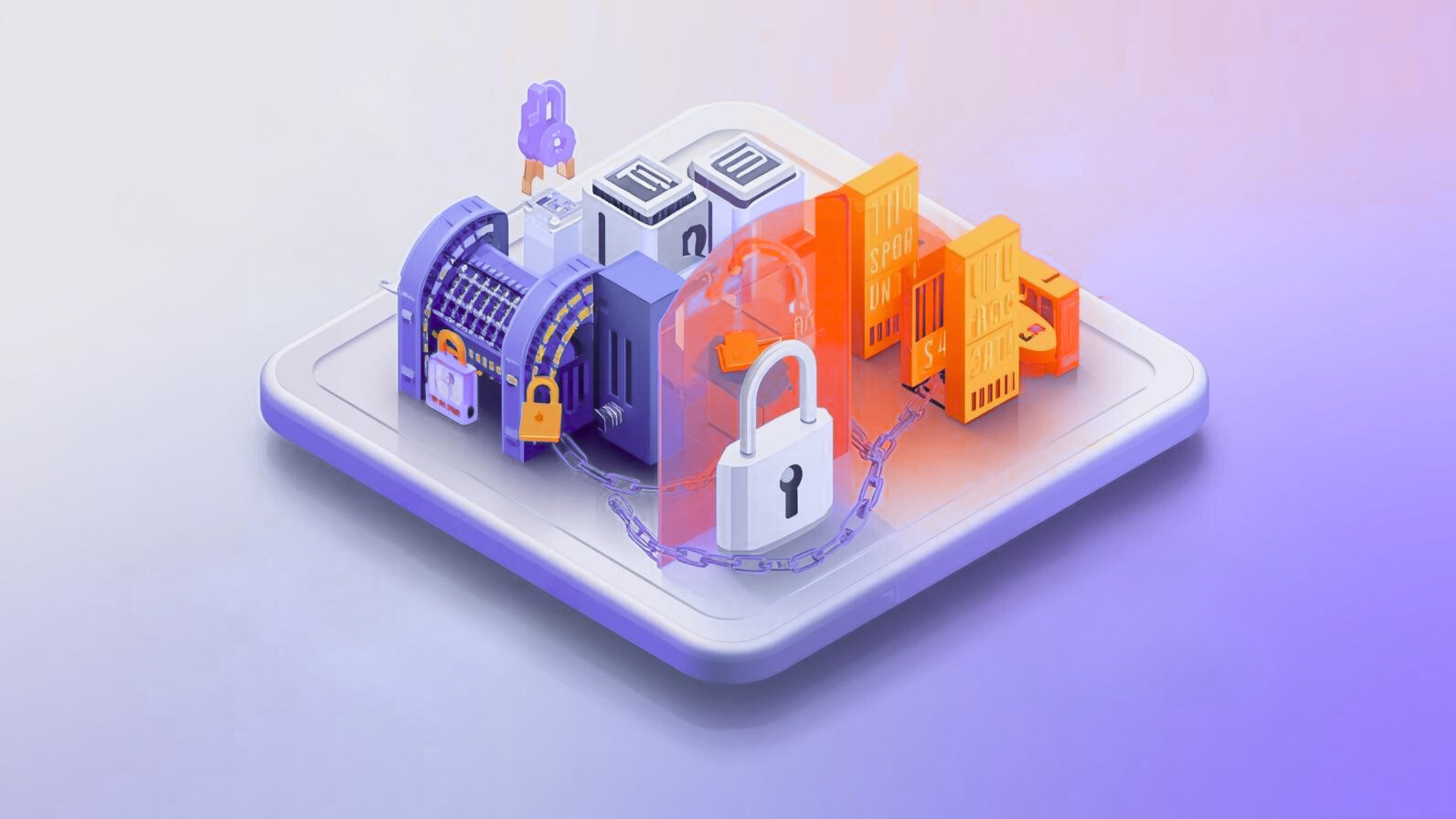The Evolution of Ransomware: Not Just Encryption, but Total War
Forget what we once knew about ransomware. In 2025, it’s no longer just “encrypt files, pay, get them back.” Modern ransomware doesn’t merely hold data hostage – it paralyzes operations, destroys reputations, and pushes companies toward bankruptcy.
The Grim Numbers: The Ransomware Economy Thrives
2025 statistics paint a dark picture:
- $1.1 billion in payments in 2023 (140% increase YoY)
- Ransomware makes up 44% of all cyberattacks (vs 32% in 2024)
- 59% of organizations fell victim in 2024
- Average ransom demand: $4.32M
- Average recovery cost: $1.5M even without paying
The most alarming trend: only 35% of organizations restored within one week in 2024 (down from 47% in 2023).
Ransomware 1.0 vs 2.0 vs 3.0: The Stages of Evolution
Ransomware 1.0: Innocent Beginnings (2005–2015)
- Goal: basic encryption/decryption
- Tactic: “Pay and get your files back”
- Defense: backups were sufficient
Ransomware 2.0: Double Extortion (2016–2022)
- Goal: encryption + data theft
- Tactic: “Pay or we leak”
- Defense: backups + compliance
Ransomware 3.0: Total Business Disruption (2023–2025)
- Goal: paralyze operations end-to-end
- Tactic: maximize damage in every way
- Defense: rethinking required
What’s New in Ransomware 3.0?
1) EDR Killer Tools: Dismantling Defenses
“Attackers are deploying tools specifically designed to terminate security solutions.” – Palo Alto Networks Unit 42
First targets:
- Endpoint Detection and Response (EDR) software
- Antivirus and monitoring solutions
- SIEM log forwarding agents
- Backup services and snapshots
Real case: March 2025, Moonstone Sleet (North Korea) used Qilin ransomware, which automatically disabled Defender and other EDR solutions before encryption began.
2) Third-Wave Extortion: Business Sabotage
In 86% of cases, attackers aim for complete disruption:
- Backup wiping – eliminating all recovery options
- Cloud sabotage – permanently erasing cloud storage
- DDoS attacks – bringing services down
- Customer harassment – threatening clients, partners, employees
Example – UK retailer (April 2025): DragonForce ransomware caused expected damages of $400M, leaving the company on the brink of bankruptcy.
3) AI-Enhanced Attacks: Artificial Intelligence for Offense
- Advanced phishing – AI-personalized emails
- Deepfakes – fake audio/video from executives
- Code generation – automated malware variants
- Evasion techniques – bypassing AI-based defenses
4) Supply Chain Devastation: One Attack, Many Victims
Modern ransomware groups increasingly target the supply chain:
- MSP attacks – compromising multiple clients at once
- Vendor infiltration – malware injected via updates
- Cloud provider breaches – systemic, large-scale impact
Case in point: the Kaseya attack hit 1,500+ MSP clients with one breach.
Why Backups Are No Longer Enough
The Backup Myth
“We have backups, we’re safe.” In 2025, this is a dangerous misconception.
Reality check:
- 97% of victims who paid got some data back – but only 59% recovered everything
- Backup wipers delete recovery points
- Cloud sabotage destroys SaaS backups
- Immutable bypass circumvents write-once protections
Why Traditional Defense Fails
- Speed:
- Average dwell time: 2–4 hours
- EDR kill within first 30 minutes
- Lateral spread is automated
- Backups are attackers’ priority target
- Living-off-the-land:
Attackers exploit legitimate tools:
- PowerShell, WMI, RDP
- Admin/IT toolchains turned against you
Huntress Response: Ransomware Canaries + AI-Assisted Defense
What Are Ransomware Canaries?
“Like a canary in a coal mine.” Lightweight files planted across endpoints to serve as early warning signals.
How they work:
- Deployed across all endpoints
- Continuously monitored
- Any change = instant alert
- 24/7 SOC begins investigation immediately
- 8-minute MTTR with isolation & containment
Real case – Friday 11:47 PM:
- An employee opened an “Excel attachment” carrying Akira ransomware
- Traditional AV: no detection
- 11:48 PM – canary triggered
- 11:49 PM – SOC alert
- 11:52 PM – ransomware confirmed
- 11:53 PM – automatic host isolation
- 11:55 PM – incident report sent
Outcome: only 3 files encrypted. Business resumed as usual on Monday.
Behavioral Analytics: The Foundation of Modern Defense
“Attackers change tools, but techniques remain consistent.”
Capabilities:
- Process-chain analysis
- File access anomaly detection
- Registry modification tracking
- Network traffic anomaly detection
24/7 AI-Assisted SOC: Human + Machine Hybrid
Follow-the-Sun coverage: UK, USA, Australia.
Not 100% automation:
“AI can’t yet replace human context-building.” – Huntress Engineering
- AI handles patterns & triage
- Humans investigate complex incidents
- ML continuously learns from analysts
Top Ransomware Groups 2025
- Qilin – 81 attacks in June (+47.3% MoM), overtook Akira
- DragonForce – media-savvy, 212.5% growth, “Ransom as Entertainment”
- RansomHub – 2024’s leader, collapsed in April 2025
Underground economy evolution:
- 101 variants in 2024
- Brands: FSOCIETY, Funksec, GovRansomArtist, HellCat, Mad Liberator
- RaaS affiliate networks at scale
- Franchise-like models generating millions
Sector Targets: Who’s at Risk?
- Healthcare – #1 target, +50% YoY, 92% of US orgs attacked in 2024
- Manufacturing – 25.7% of all incidents, supply chain chaos, IoT/OT weak spots
- Finance – 18.2% share, but highest payouts, compliance & trust at stake
Practical Defense Strategies for 2025
Tier 1: Emergency Response (0–24h)
- Offline playbooks
- Communication trees
- Regulatory notification workflows
- Crypto payment decision policy
- Auto-isolation systems
Tier 2: Advanced Detection (1–4 weeks)
- Huntress Managed EDR rollout (pilot → full deployment in 4 weeks)
- Ransomware Canaries deployment
- SOC integration + baselines
- Behavioral analytics activation
Tier 3: Business Resilience (1–6 months)
- Immutable, air-gapped backups
- Georedundant replication
- Automated restoration drills
- Zero Trust architecture (least privilege, microsegmentation, continuous auth)
Economics of Ransomware: To Pay or Not to Pay?
- Median ransom: $2.73M in 2024 (double YoY)
- Recovery: $1.5M without paying
- 97% who pay get some data, but only 59% get all
Why not pay?
- No guarantees (faulty decryptors, repeat attacks 80% rate)
- Legal risk (OFAC, terrorism financing)
- Insurance invalidation
- Long-term reputation damage
The Future: Ransomware 4.0 Preview
Emerging Trends 2025-2026
1. Quantum-Resistant Ransomware
- Quantum-proof encryption implementation
- Unbreakable data locks even decades from now
- Post-quantum cryptography weaponized
2. IoT Ransomware Swarms
- Smart city infrastructure targeting (traffic lights, water supply, power grid)
- Connected vehicles remote control and disabling
- Industrial IoT attacks (factories, hospital equipment, power plants)
3. AI vs AI Warfare
- Autonomous ransomware - artificial intelligence automatically seeks targets
- Self-modifying malware - constantly evolving, learning viruses
- Real-time adaptation - AI attacker vs AI defender, split-second response
The bottom line: Ransomware 4.0 is no longer under human control. Quantum technology, full infrastructure attacks, and artificial intelligence warfare - this is no longer sci-fi, but reality within 2-3 years.
Conclusion: Survival in the Ransomware 3.0 Era
Survival depends on preparation, not luck.
Keys to success:
- Early Detection – Huntress Canaries
- Rapid Response – 8-min MTTR, 24/7 SOC
- Business Continuity – offline playbooks, Zero Trust
- Continuous Improvement – AI-assisted hunting
Why Huntress?
- Proven at scale (millions of endpoints)
- 24/7 global SOC + threat intelligence
- Transparent pricing, no hidden fees
- Unlimited clients, easy implementation
In 2025, defense isn’t optional – it’s survival.
Ready to fight Ransomware 3.0? Gloster Cloud helps implement Huntress Canaries and 24/7 SOC protection.




